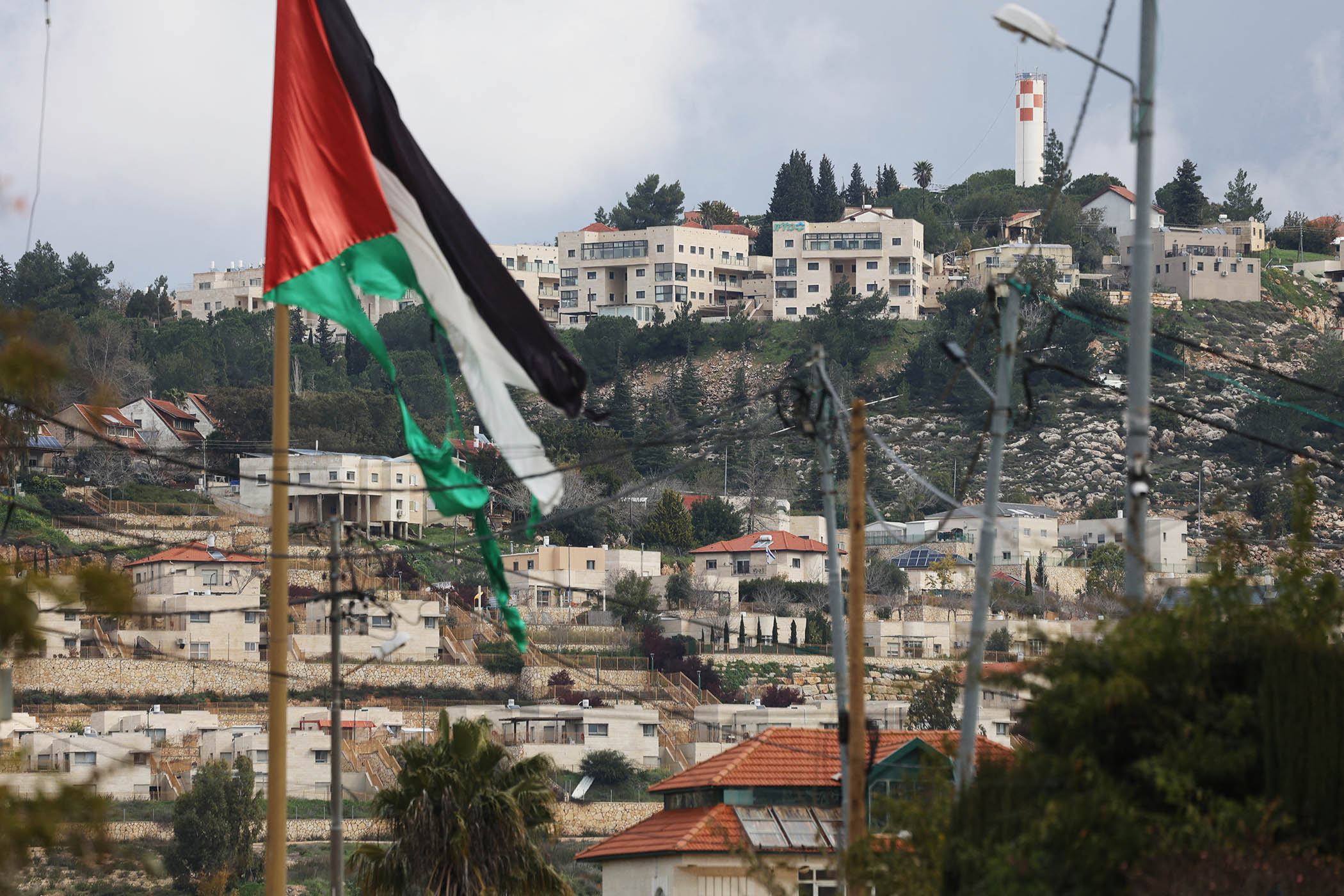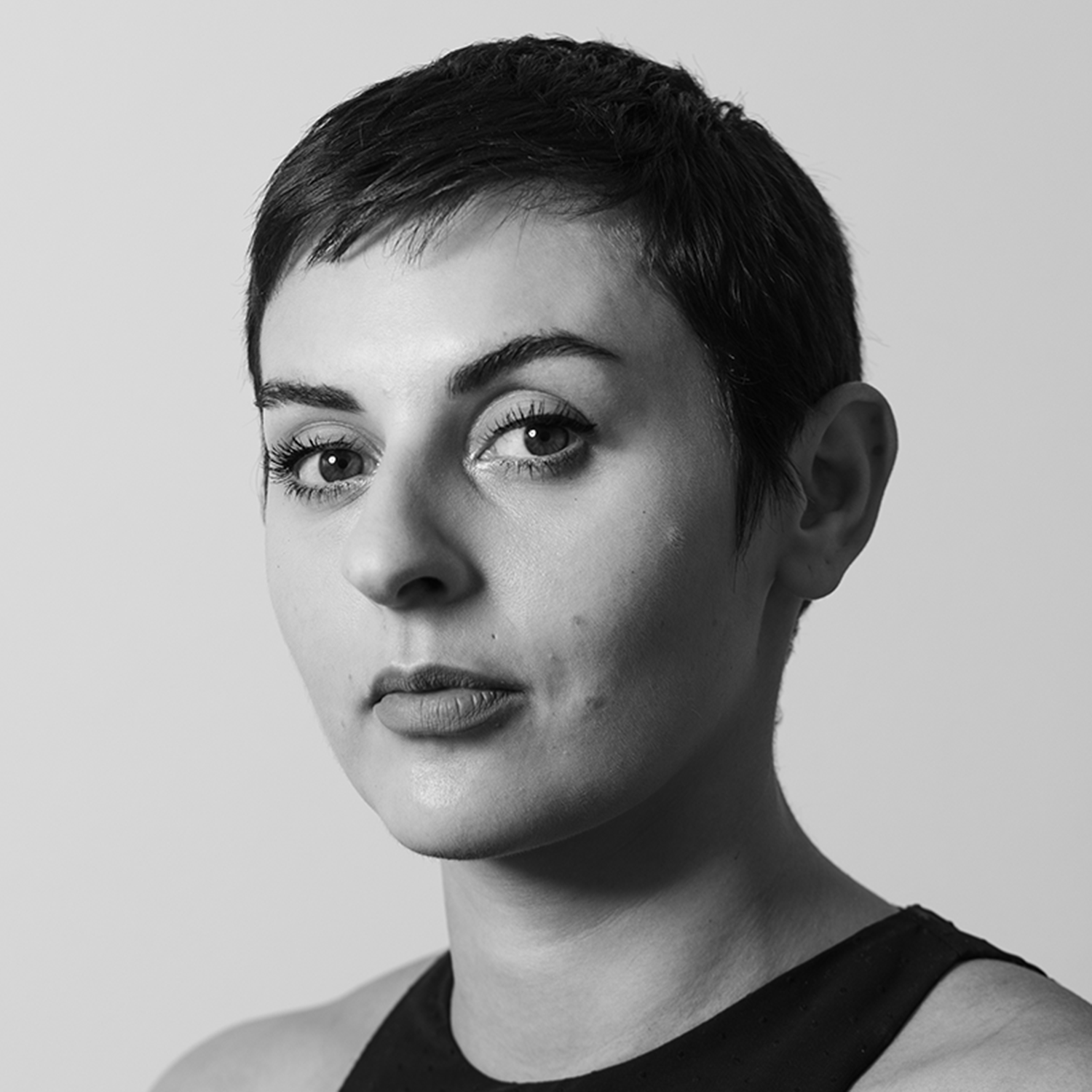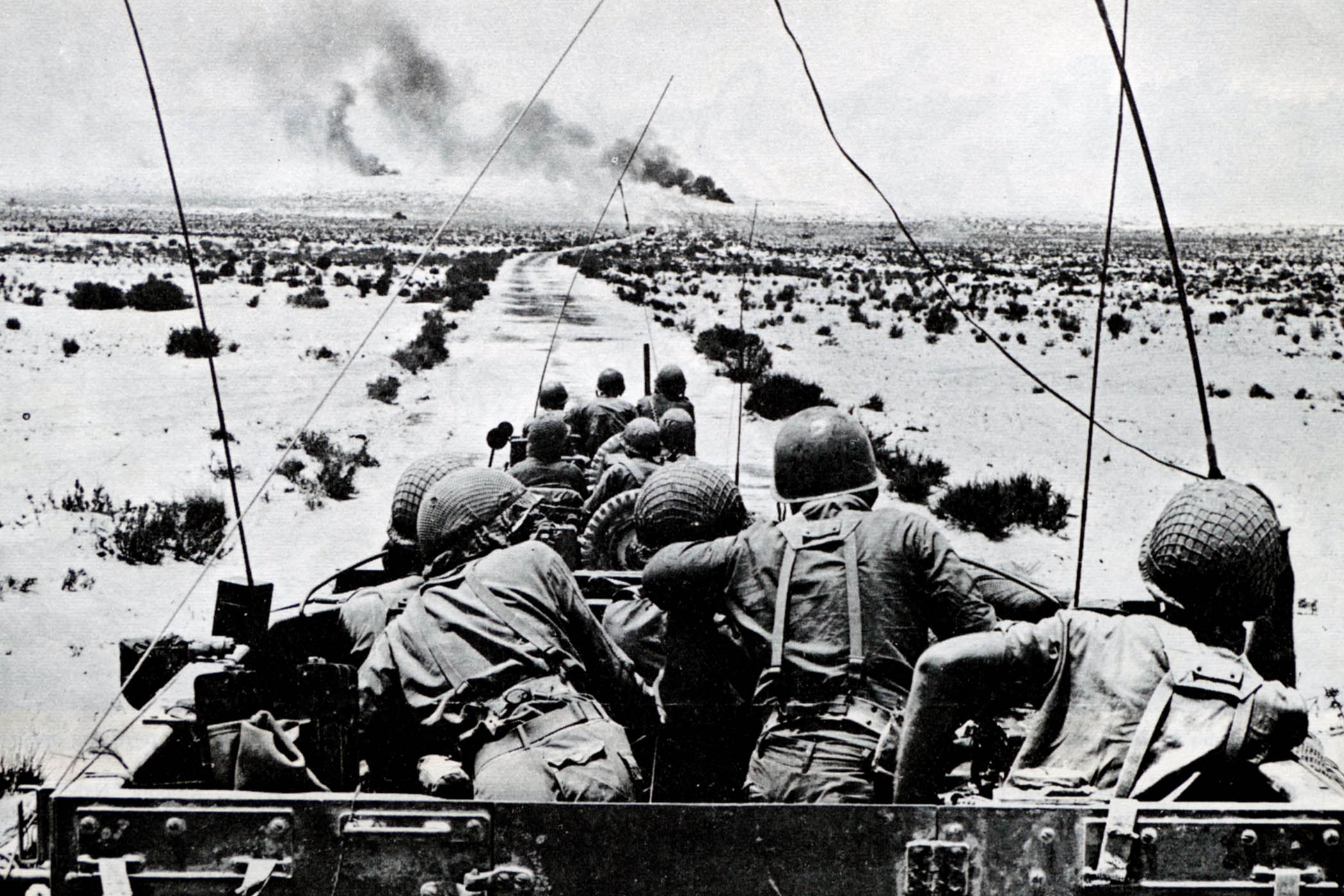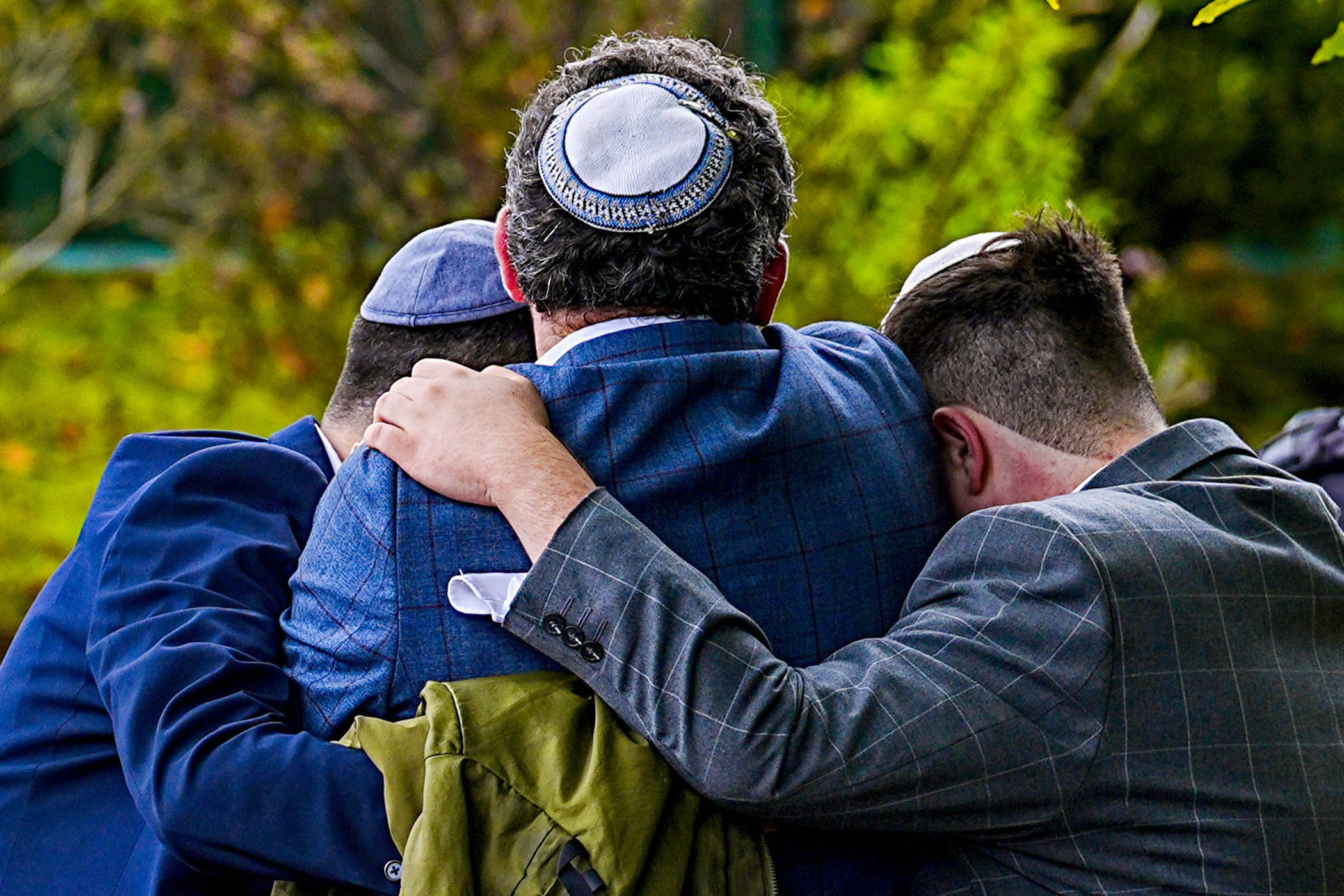Every piece of furniture in Yaser Alkamʼs palatial six-bedroom home in the West Bank town of Turmus Ayya was shipped in from America – from the gigantic black refrigerator complete with ice machine to the pots of plastic green spiralled topiary next to the front door.
Yaser admits the house he spent six months remodelling after he and his wife, Jinan, returned from California is perhaps too big for the two of them, but it sits on land owned by his family for generations. He enjoys sitting at his desk, in what he calls his man cave, writing legal briefs and occasionally looking up at a screen showing a panorama of security camera footage from beyond the stone walls around his enormous driveway.
The security cameras are a hangover from his 35 years in America: like 85% of Turmus Ayya residents, Yaser is a US citizen. Turmus Ayya has the feel of a US suburb with large white-stone villas dotted among acres of olive groves. Every one of these mansions is ringed with cameras, but those on the other side of town are at the mercy of gangs of armed, masked settlers on the rampage, burning cars, houses and threatening anyone in their way.
“God forbid if they were to reach this neighbourhood: that means the whole town has been taken,” Yaser said. Settler attacks on Turmus Ayya are now a daily occurrence: a fragile ceasefire agreement that Washington is struggling to hold together in Gaza means nothing in the West Bank, where violence flares daily and yellow diggers heralding settlement expansion sit on every hillside.
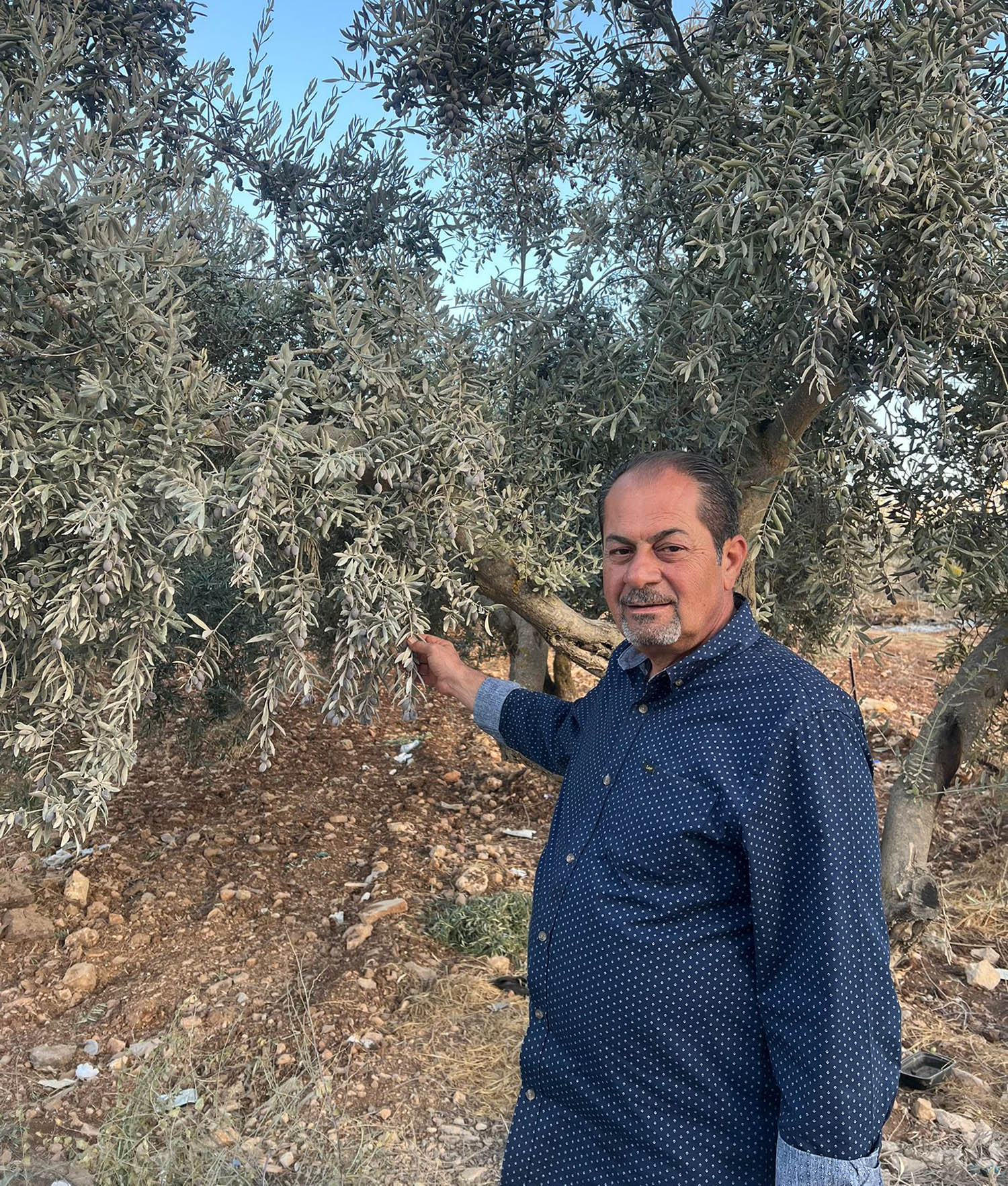
Yaser Alkam in his garden in Turmos Ayya
Several thousand Palestinian-Americans living in Turmus Ayya feel they are under attack by the Israeli authorities backed by settlers at the heart of the Israeli government, while also being abandoned by Washington. At least one resident said they regretted their vote for Donald Trump.
Meanwhile the Trump administration has emboldened the attackers. Not only does the US provide $3.8bn (£2.84m) in annual military aid to Israel, but this year it has also offered as yet unseen levels of support for settlements such as neighbouring Shiloh, whose houses loom on the hills over Turmus Ayya.
Settlements such as Shiloh are illegal under international law, but this has done little to deter the Trump administration
Settlements such as Shiloh are illegal under international law, but this has done little to deter the Trump administration
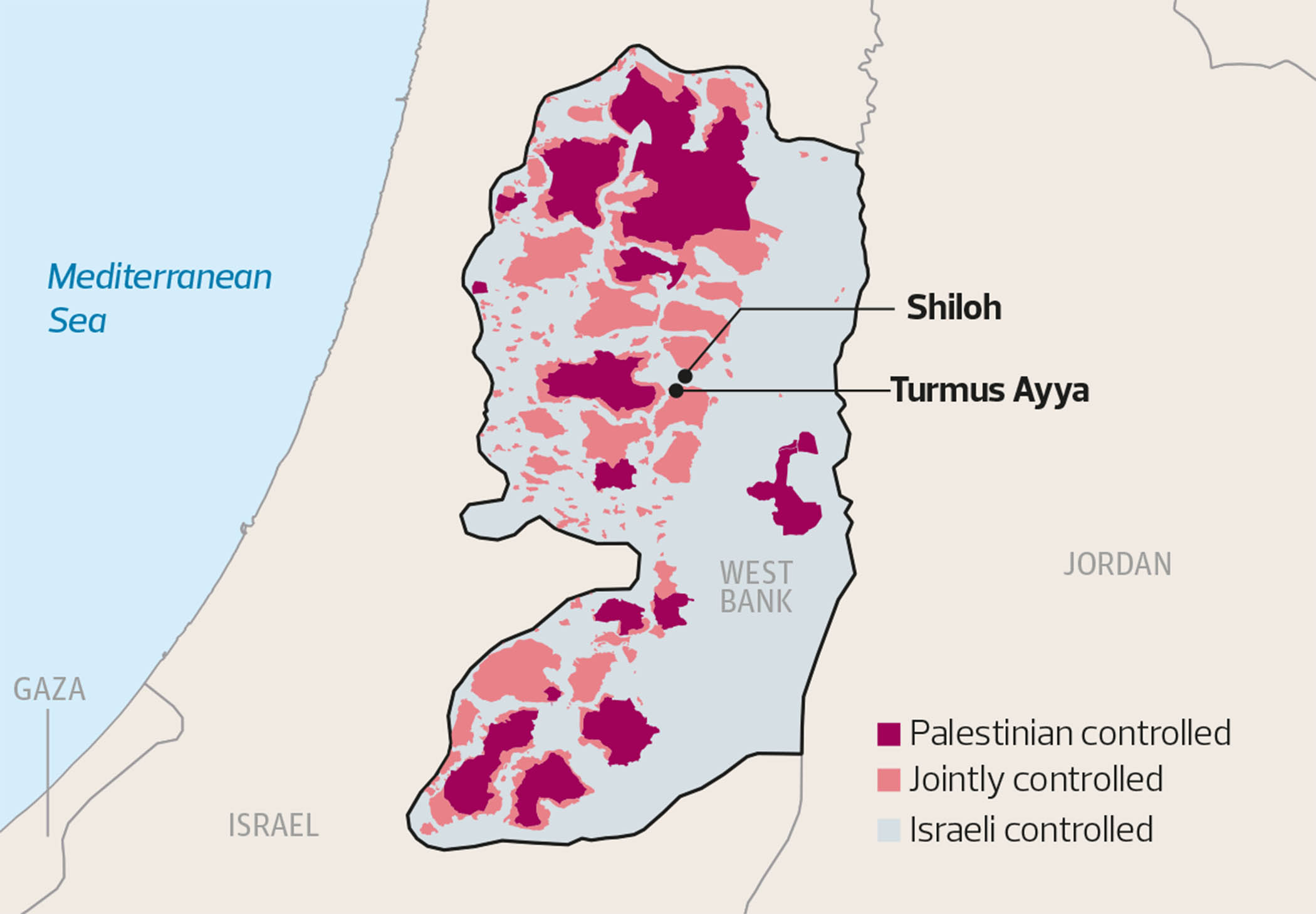
Shiloh is home to attackers from the violent Hilltop Youth faction– a group accused of involvement in “killings, arson, assaults, and intimidation intended to drive Palestinian communities out of the West Bank,” when designated as extremist by the US Treasury last year. The sanctions designation cited violence in Turmus Ayya.
Settlements such as Shiloh are illegal under international law, but this has done little to deter the Trump administration. When the US house speaker, Mike Johnson, had dinner with the Israeli prime minister, Benjamin Netanyahu, and the US ambassador, Mike Huckabee, in Shiloh two months ago, he became the highest level American official to visit a settlement.
Huckabee also visited Shiloh a few months earlier, where he prayed and told residents of a place known to Palestinians as a hub of violent attacks that they had “paid in blood, sweat and tears,” to live there.
Trump administration officials have continued to arrive in Israel insisting on their role as peacemakers – in defiance of many Palestinians in the West Bank and Gaza living with the impact of Washingtonʼs policies. Flanked by White House envoy Steve Witkoff, the US vice president, JD Vance, arrived in Jerusalem yesterday to stress that US efforts to steady a delicate ceasefire in Gaza would ensure the truce remains.
Newsletters
Choose the newsletters you want to receive
View more
For information about how The Observer protects your data, read our Privacy Policy
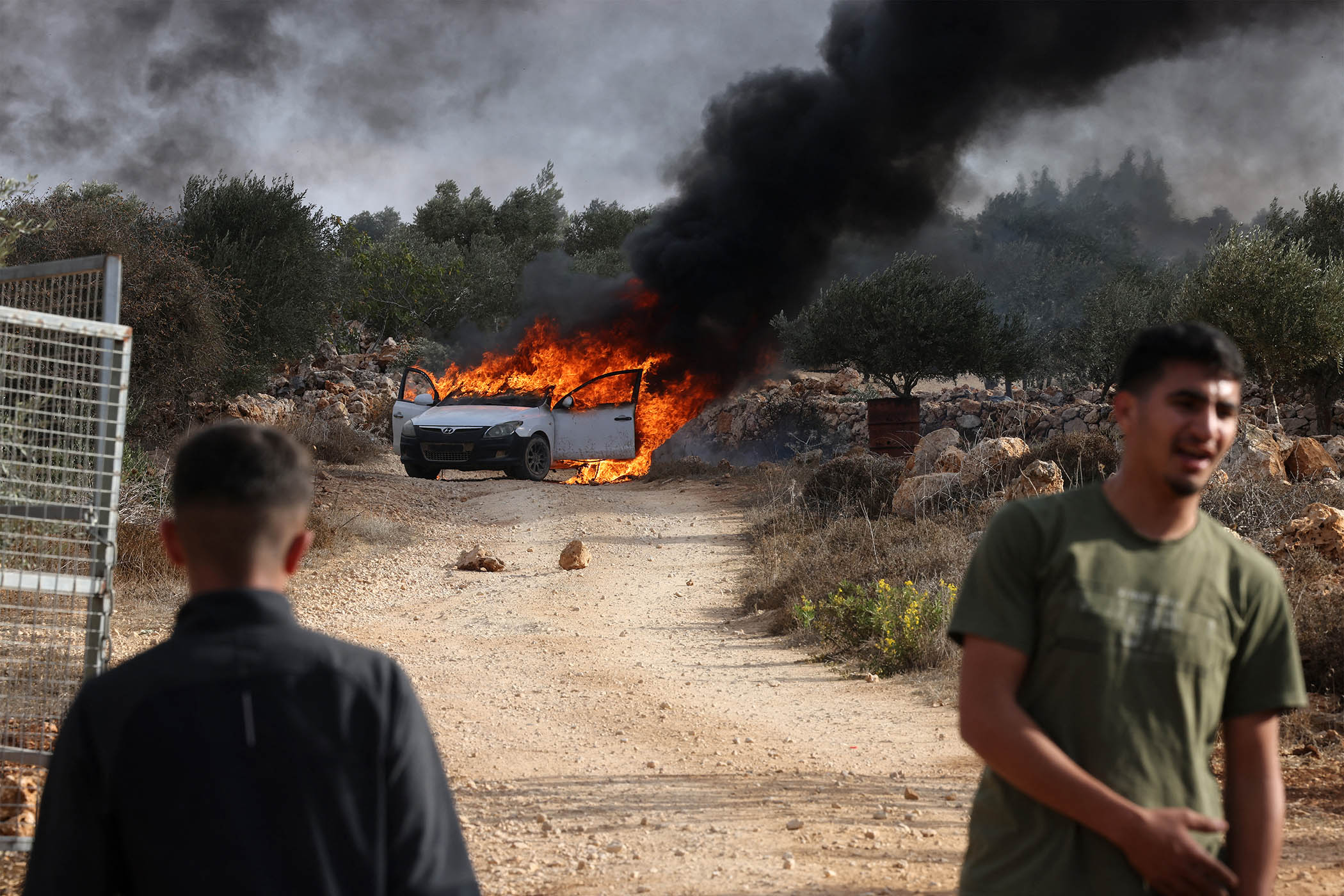
Palestinians watch a burning car reportedly set alight by Israeli settlers attempting to disrupt the olive harvest
“Right now, where I stand, I feel confident that we’re going to be in a place where this peace lasts, where it’s durable,” he said.
Peace of any kind appeared a remote possibility in the West Bank, which is not mentioned in the Trump administrationʼs ceasefire plan and appears forgotten in any longer term effort to consider what a true end to two years of Israelʼs longest war might look like. Yaser said when residents of Turmus Ayya heard news of a ceasefire, they were happy that it meant no more killing in Gaza. But that’s where their joy ended: they knew the settler attacks on their homes would continue.
‘They want to intimidate us as much as possible, so we do not go back to these lands’
‘They want to intimidate us as much as possible, so we do not go back to these lands’
Yaser Alkam, Turmus Ayya resident
“What it meant really is that the war that they started here in the West Bank two years ago is still going on,” he said. “Yes, everybody thinks there’s a ceasefire in Gaza, but we have no ceasefire in the West Bank. The attacks continue to happen daily.”
The UN office for humanitarian affairs tracked 71 settler attacks in the West Bank within a week of the Gaza truce going into effect. A particularly brutal attack took place in Turmus Ayya on the day that the ceasefire appeared most at risk of collapse, when the killing of two Israeli soldiers in Gaza sparked Israeli reprisal airstrikes that killed at least 26 in the enclave. The Gaza government media office said 97 people were killed – in shootings or airstrikes – by Israeli forces in the 10 days after the ceasefire went into effect, while Israeli forces accused Gazans of straying too close to their troops.
Video from Turmus Ayya on the day of the attack shows dozens of men with their faces covered chasing Yaser and an American journalist before they smashed the windscreen of Yaser’s car. A masked settler armed with a club beat an elderly woman to the ground among the trees where residents had gathered to harvest olives. No one has been held accountable for the attack.
The Israeli military said simply that “the confrontation was defused,” before the matter was referred to the Israeli police – tacit recognition that Israeli state infrastructure is now operating deep within Palestinian territory amid fears that Israel has de-facto annexed the West Bank.
Israel’s parliament advanced two bills to formally annex the West Bank during Vance’s visit – hours after he was joined by the US secretary of state, Marco Rubio, who warned that annexation could jeopardise peace in Gaza. Vance called the move in the Israeli parliament “a political stunt” in comments to reporters. “I personally take some insult to it,” he added.
Trump reaffirmed this in comments at the White House. “Israel’s not going to do anything with the West Bank,” he said.
But these comments ring hollow amid high-profile American visits to settlements like Shiloh, which are seen as backing the land-grab taking place. Those in the West Bank say the annexation is underway on the ground, no matter what the White House says.
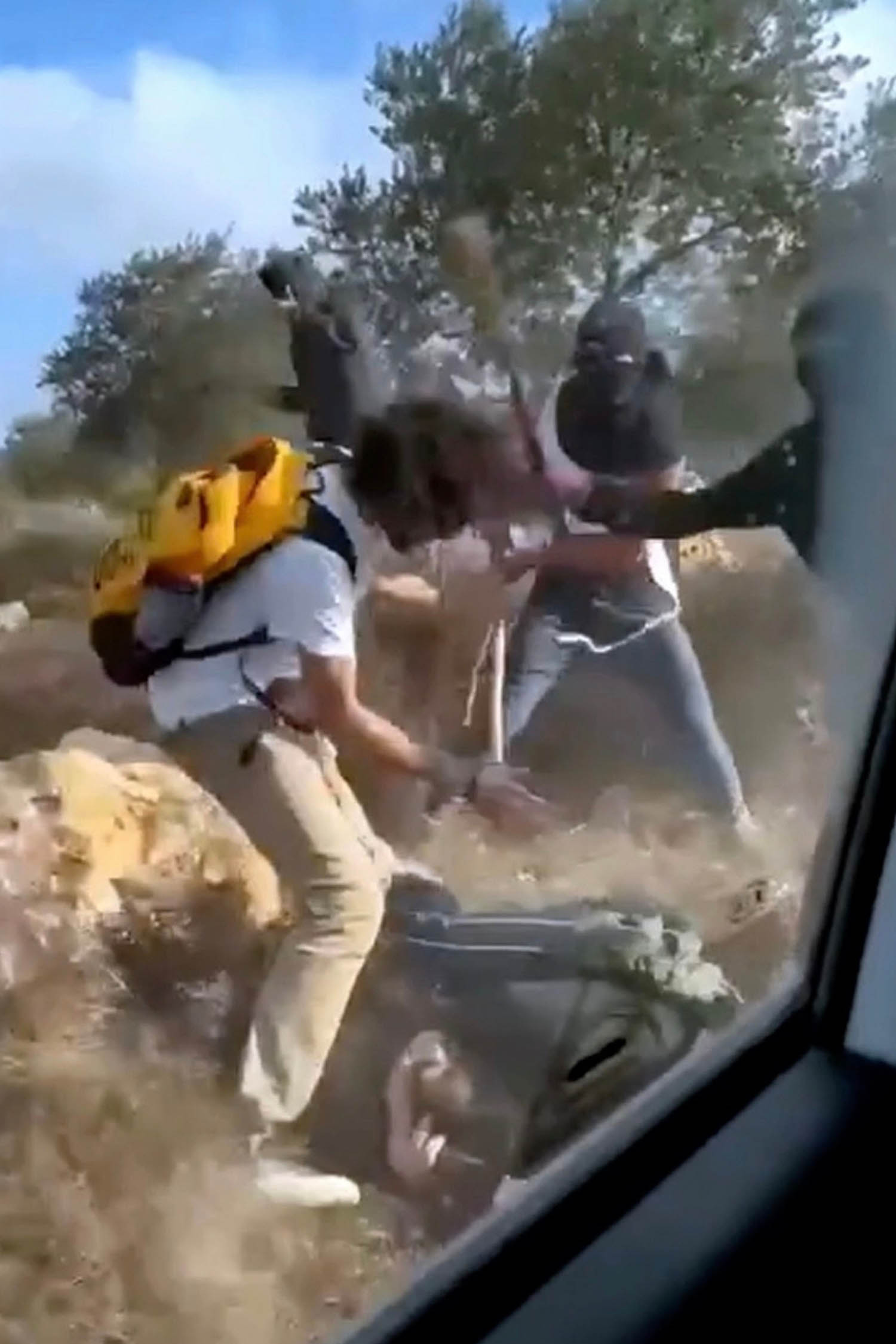
Image taken from a video of masked settlers beating Palestinian farmers in Turmus Ayya last weekend
The attack, while brutal, is far from the worst to have taken place in Turmus Ayya. Inside the municipality building where Yaser and his colleagues sit on the local council, a large screen plays a reel of footage from an attack in June 2023, months before the war in Gaza began. A mob of hundreds of settlers stormed the town, burning 30 homes, twice as many cars and killing 27-year-old Omar Jebara, who was shot by one of the settlers when he tried to help a woman from her burning home. She was among more than a dozen injured.
There is an intimacy to the violence as the residents of Turmus Ayya are often familiar with their attackers despite their masks. But they are even more familiar with the head of settlement security, assigned to his position by the Israeli military, whose white Toyota pickup they see as a sign of coming danger. To the Palestinians of Turmus Ayya, the Israeli soldiers assigned to Shiloh are there to support the settlers – and to assist in efforts to keep them off their land.
Yaser remembers spotting the earliest construction in Shiloh while in high school. It seemed strange to him then, but he never imagined the land grab that would come next. By the time he returned home to Turmus Ayya three years ago, the settlement had become a behemoth as well as a launch pad for attacks. Roving groups of Hilltop Youth terrorise Palestinians out of the olive groves that surround the town: Turmus Ayya once had more than 1,000 hectacres of land, now Palestinians can access only a fifth of that.
Once in control of an area, the settlers establish outposts that have been routinely legalised by the Israeli government – with the aid of the far-right finance minister Bezalel Smotrich, who is a settler himself – allowing the settlement to expand. Smotrich this week called for the resumption of fighting in Gaza by posting the word “war” to his social media account.
“The bottom line is they want our land,” said Yaser. “They want to scare us off, to intimidate us as much as possible, so we do not go back to these lands. And we’re doing everything possible to maintain possession of these lands.”
Palestinian analyst and former PLO negotiator Xavier Abu Eid said that Israeli settlers are acting as the vanguard for government policy across Palestinian territory– rather than outside the law.
“A way to explain the degree of impunity they receive is that they are implementing Israeli government policy. They are not just a bunch of extremists working against the law. On the contrary, no Palestinian state, no right to Palestinian self-determination is all Israeli government policy.”
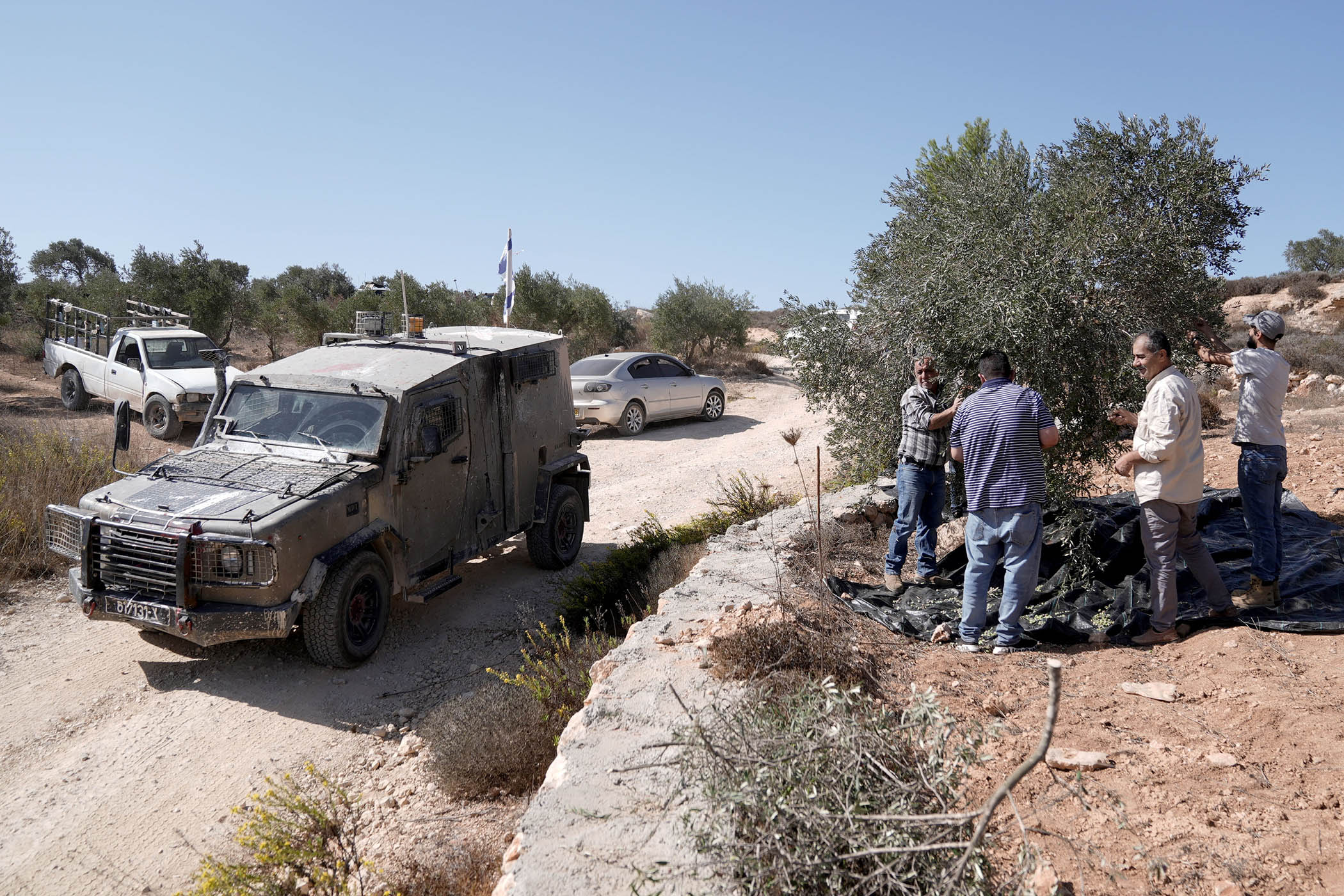
Palestinians continue the olive harvest in Turmus Ayya
Abu Eid spoke to The Observer in the centre of Ramallah, the seat of the Palestinian Authority in the West Bank, but which has little power in areas like Turmus Ayya. Despite this the unpopular and weak body could be tasked with administering Gaza in future under visions put forward by Egyptian and Jordanian negotiators. While negotiations on Gaza sputter forwards, Israeli forces have stepped up daily raids on Ramallah – no longer limited to nighttime incursions or a rare presence on its outskirts.
“Practically, there is a pause on the war in Gaza – but it’s not a pause on attacks against Palestinians, so if they keep doing what they’re doing in the West Bank they’re not violating the agreement,” said Abu Eid. “The policy is that they want us to suffer: this is what we are facing now.”
The spike in settler attacks during the annual olive harvest has struck a nerve among Palestinians, for whom the olive trees symbolise their link with the land. Yaser believes the oldest olive tree in Turmus Ayya is thousands of years old. But even amonge the olives, Yaser and the other residents of Turmus Ayya feel they are under siege, and their regular reports of settler attacks to the US embassy in Jerusalem are going ignored.
“Their ultimate purpose is to seize the land, and they’re succeeding in doing that little by little because nobody’s doing anything about it,” he said. “I mean, we can’t fight back – the only tools we have are our bare hands, and they have machine guns and an army supporting them. So they are succeeding.”
Photographs by Jaafar Ashtiyeh/AFP via Getty, Hazem Bader/AFP via Getty, Issam Rimawi/Anadolu via Getty, AP
Related articles:
